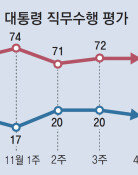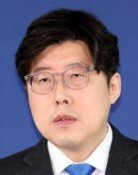Is South Korea prepared for new changes in US alliance?
Is South Korea prepared for new changes in US alliance?
Posted October. 21, 2024 08:16,
Updated October. 21, 2024 08:16
The U.S. presidential election is only two weeks away and it will be held at a turning point for the world. While everyone is curious to know the outcome, t the winner of the eventful presidential race is yet to be known.
Both candidates, democratic presidential candidate and Vice President Kamala Harris and Republican presidential candidate and former President Donald Trump, share the perception that the U.S. is facing the greatest challenge since the end of the Cold War. Yet the completely different solutions suggested by the two candidates are presenting increased uncertainty in global security and the economy.
The main topic for the U.S. presidential election four years ago when President Joe Biden took office was strategic competition between the United States and China. Now the main topic for the next U.S. administration is cooperation among China, Russia, North Korea, and Iran. The platform policy adopted by the Democratic Party and the Republican Party at their national conventions presents goals and pledges for each of the four major threats, including China, Russia, North Korea, and Iran, and how to respond to new challenges arising from cooperation from these countries.
Change in South Korea- U.S. alliance has grown inevitable, regardless of who becomes the next U.S. president. Harris proposes to build a new alliance framework and strengthen military power. The alliance, which was built according to geopolitical divisions such as Asia, Europe, and the Middle East, is aiming to become more intertwined and interlocked like the security cooperation between Korea, the United States, Japan, the North Atlantic Treaty Organization (NATO), and the four Indo-Pacific countries (AP4), by accelerating the Biden administration's plan to revise the security framework.
In an interview at the ‘Chicago Economic Club’ last Tuesday, Trump demanded a significant increase in defense spending by commenting that he would have “Korea would pay 10 billion dollars in defense spending.” The increase in Korea's defense budget, along with the increase in NATO's defense budget, is likely to become a representative goal of America First, which will define the second Trump administration.
However, the second Trump administration faces the task of prioritizing America first, while at the same time drawing on the contributions of allies to increase deterrence against North Korea, China, Russia, and Iran. In particular, Trump mentions South Korea along with Germany as a main U.S. ally that “exploits the United States” at every campaign rally, but the situation is different between Germany and South Korea. For Trump, who wishes to focus on keeping China in check by relieving the burden on security in Europe and the Middle East by ending the war in Ukraine and Gaza, it is not easy to change plans for US troops stationed in Korea. Every time Trump blames South Korea for free-riding security budgets during his campaign, Trump's key advisers emphasize that "the South Korea-U.S. relationship will be further strengthened if Trump returns to power.”
There is word of a possibility of a big deal in South Korea-U.S. relations in diplomatic circles in Washington. To avoid repeating the mistakes of the first Trump administration, such as mentioning the withdrawal of U.S. troops in Korea while requesting for an increase in defense spending, key issues in the South Korea -U.S. relationship, including extended deterrence, nuclear energy cooperation, and trade, in defense cost-sharing negotiations, will be brought to the negotiation table. The idea is to put it up and discuss it. Some hardliners in the Congress, though few, argue for discussing an increase in defense cost sharing by leveraging the redeployment of tactical nuclear weapons on the Korean Peninsula.
If the above situation becomes a reality, it could become a threat that will shake the nation's fortunes, or it could become a security and economic opportunity that was unimaginable in the past. Is Seoul prepared for such change? This question may be more important than who will be the next president of the United States.







